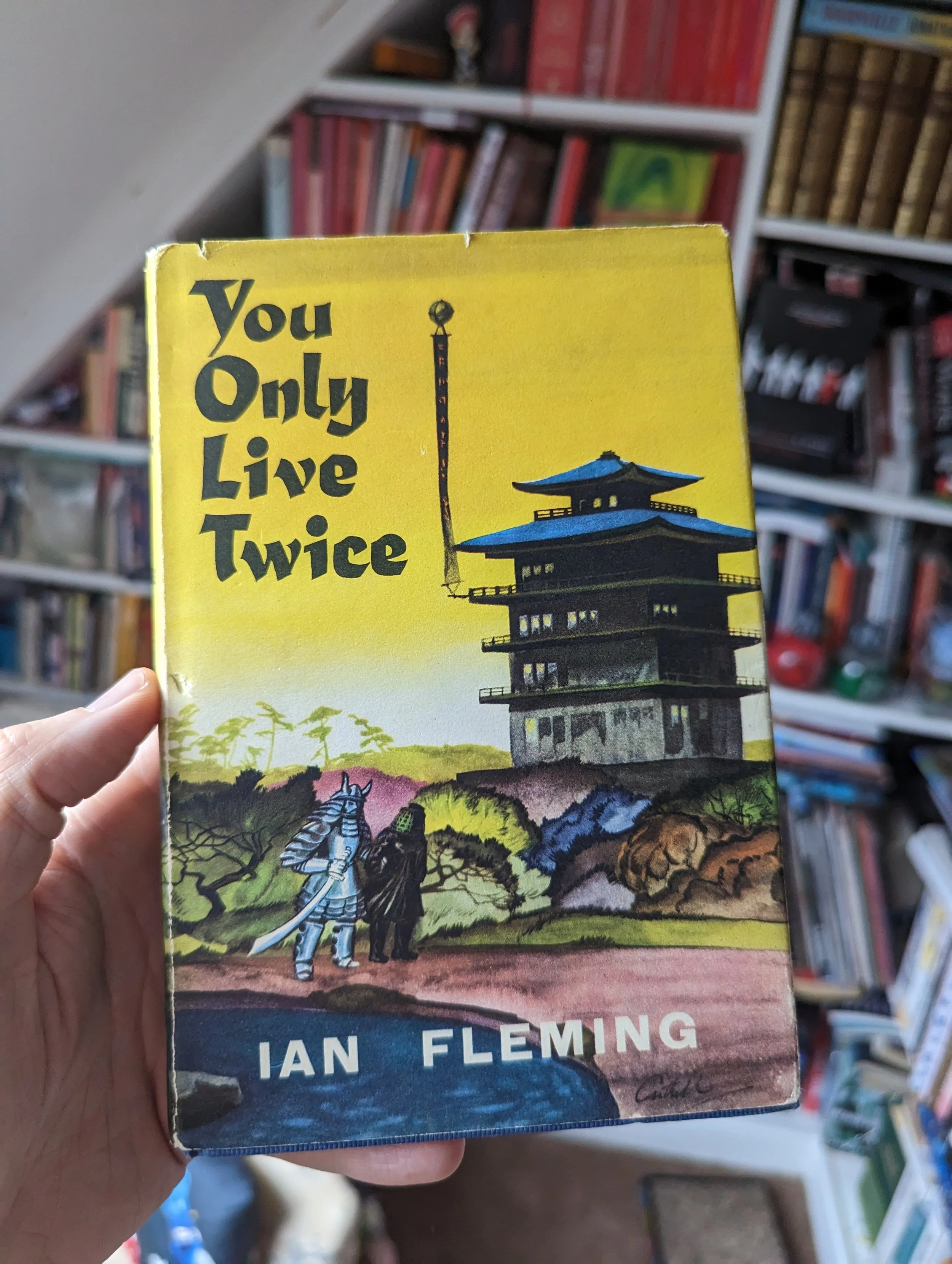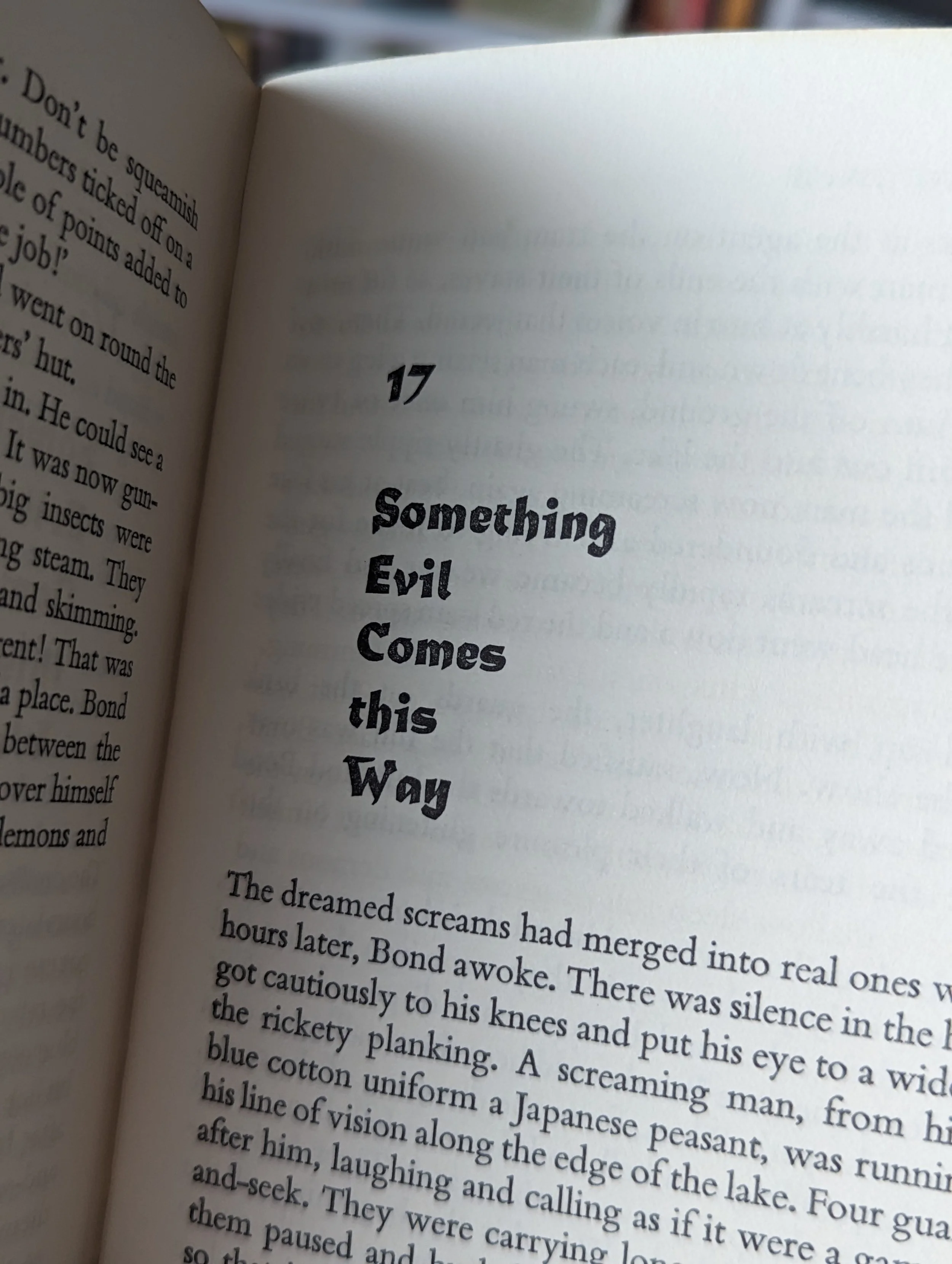You only allude twice: Fleming’s associations between Shakespeare and St George
April 23rd is a double celebration in England, with both of those being celebrated – St George and Shakespeare - coming together in the climactic chapters of not one but two Bond novels.
Chapter 17 of You Only Live Twice is one of the most thrilling passages in all of Fleming, imbuing the upcoming showdown between Bond and Blofeld with mythological grandeur. It’s also entrancingly weird, with Blofeld cosplaying as a samurai (why not!) and Irma Bunt lavishing praise on Herr Ernst’s poisonous garden by calling it a “Disneyland of Death”!
Shakespeare’s Macbeth has a similarly darkly comic sensibility: surely only Stratford-upon-Avon’s most famous son would think to heighten the tension surrounding a murder by inserting a comic scene in between its plotting and execution. Not just a comic scene, but one in which a drunk doorman launches into a series of jokes about erections and urination. And people say Octopussy has sudden shifts in tone.
It's fitting then that, at the moment of greatest tension in You Only Live Twice, Fleming paraphrases half of a couplet from Shakespeare’s macabre tragicomedy: “By the pricking of my thumbs / Something wicked this way comes”. It’s rendered by Fleming in a more vernacular way: “Something Evil Comes this Way.”
Fleming was fond of using – or subverting - idioms for his chapter headings, as he was for the titles of his novels. They were often uncanny twists on everyday phrases, e.g. Live and Let Die, rather than live and let live. So many of Shakespeare’s phrases have become idioms we say every day without thinking of them as Shakespeare’s that it’s impossible to know whether Fleming was intentionally invoking Shakespeare directly, or – as all English-speakers do – indirectly. But Fleming was fond of the literary allusion as he was the idiom, and it’s hardly the only time he references Shakespeare.
For instance, in Goldfinger, ahead of his showdown with aureately-orientated Auric, Bond psychs himself up with the famous rallying cry from Henry V:
“Bond sighed wearily. Once more into the breach, dear friends!”
(In Shakespeare it’s “unto”, but Fleming either misquoted or intentionally updated it to avoid being too self-consciously Shakespearean.)
In this passage, Fleming invokes not just one historical personage who was subsequently mythologised into a national hero but two. He immediately follows up the Henry V quote by framing his upcoming battle with Goldfinger as follows:
“This time it really was St George and the dragon. And St George had better get a move on and do something before the dragon hatched the little dragon's egg he was now nesting so confidently.”
What’s intriguing – and perhaps revealing of Fleming’s thinking – is he does the same thing several books later, in You Only Live Twice: a Shakespeare reference is intertwined with Bond being put in the same historical/mythological frame as St George.
Before Bond sets out for his confrontation with Blofeld, Tiger Tanaka makes the comparison between Bond and England’s patron saint: “Bondo-san, does it not amuse you to think of that foolish dragon dozing all unsuspecting in his castle while St. George comes silently riding towards his lair across the waves? It would make the subject for a most entertaining Japanese print.”
What was Fleming thinking then, by bringing Shakespeare and St George into the same situation, not once but twice?
Perhaps he was doing it on purpose: why invoke one national hero when you can invoke two, providing a sort of moral support for Bond when he’s facing impossible odds. Or maybe it was unintentional: when you’re thinking about one national hero, you can’t help but associate with others.
We know very little about either the real-life ‘George of Lydda’ or Will Shakespeare. In England, we celebrate both on April 23rd although we don’t even know when they were born. Perhaps this is less surprising for the 3rd Century George and less so for Will, whose death date is recorded as April 23rd 1616. But record-keeping wasn’t the best in the mid 16th Century. We only say April 23rd was Shakespeare’s birth date as well as his dying day because it provides some satisfying circularity. Coming full circle over the course of a lifetime is an idea Shakespeare played with repeatedly in his works, most famously in the ‘Seven Ages of Man’ speech, placed in the mouth of As You Like It’s melancholic Jacques.
Fleming plays with it too in his famous haiku:
You only live twice:
Once when you are born,
And once when you look death in the face.
It prefaces the last Bond novel to be published in Fleming’s lifetime. The haiku begins with a twist on an idiom: you only live once. Fleming’s twist has arguably become an idiom in its own right, being used in every day conversation, not just in discussions about James Bond. A second life, as it were.
Further reading
Quite a bit has been written about Bond as myth, including my queer re-view of No Time To Die.
I analysed Bond as a national hero in my queer re-view of The Spy Who Loved Me.
Curious footnote: Fleming specifies (in On Her Majesty’s Secret Service) that George was also the middle name of Blofeld’s father. A further hint that Bond/Blofeld are two sides of a Manichean coin?


